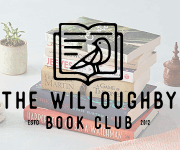
Discussion posts are some of my favourite posts to read. New ideas get shared that way, or old ideas are revisited and given a new spin. And of course, I get to be my opinionated self as I hoist my views upon others, while pretending to be objective. Or maybe not. I do welcome alternate views and I’d love to hear from you in the comments!
For me Goodreads is first a site to organize my reading life, then a social networking platform for readers. I’ve been on Goodreads for a number of years but when I first started out, I was very haphazard about it. Plus, I tried to remember all the titles I had read in my life to shelve them on Goodreads. Needless to say, it was a very futile exercise. In January 2012 I decided that I needed a do-over. I deleted my original account and set up a new one. My read shelf was going to chronicle books from scratch. This was especially helpful because then my recommendations would be based on books I had actually been reading. All these children’s books’ recommendations on my original account were rather useless in my search for new books to read.
Since I was starting from scratch, it is no wonder that I could develop a very elaborate shelving system. See, I shelve the way one might add tags to blog posts. Besides shelving according to genre, I also shelve according to whether I read an ebook or listened to the audiobook. I don’t stop there though. I also shelve according to the themes and characteristics of the plots. This is why I have a shelf labelled single parenthood, another identity and another loneliness. Basically this is what my bookshelves look like on my profile:

Some might see this as obsessive. Looking at the shelves a book is on though sometimes is enough to trigger all the memories that I have about that book. That saves me time from reading the synopsis or my review. Also, what if someone asks me if I know of any books that deal with bullying? All I have to do is to check Goodreads, and I can tell them I’ve got 5 books. Very convenient. When I’m in the mood for dystopian books, I just look up recommendations based on my dystopian shelf. Much more personalised than checking out the listopia section on Goodreads. Although, that doesn’t work so well when I’ve only shelved a book or two. Still, I’m sure that over time, I will see this system bear more fruits.
Since I’m a sociology student, I think it’s no wonder that classifications and stats as a whole do fascinate me. Ok, no, I’m not really into the mathematical algorithms but I the emerging trends are always fun to look at. This is why I like the fact that the shelves are sorted according to the number of books on them. This gives me a sense of what I’m into. What’s even cooler is the cloud that gives a visual of it all:

Case in point about my preference for Young Adult. On the plus side, my non-fiction shelf is prominent enough for me to notice it. I’ve been trying to expand more to non-fiction as well. There’s a lot to be gained from these and it would be a shame to let these books pass me buy ’cause my nose is always buried in fiction. In a way Goodreads has helped me to become more of an intentional reader because I track the books I read and look for books at the library or bookstore that I otherwise never would have heard of.
At the end of the day though, I think Goodreads bookshelves also serve to feed my need to control everything, put a number on stuff to churn out statistics and to prove to myself that I did read all these books.
Is the shelving system as over the top as I’m starting to think or are there others out there who do the same? How do you use the Goodreads bookshelves, if at all?

I know a lot of people use the shelves this way. Personally I only have shelves to track a few different things – star ratings, year I read the book, if I got the book from NetGalley, and a couple specific award lists. All very concrete things, so there’s no waffling about if a descriptor really fits a particular book or not, which is I think the problem I’d run into if I did it your way. I’d love it… but I’d feel like I was never really “done” tagging a book, and that would drive me crazy.
Well, part of the reason I thought it was possible was that I started from scratch. Doing this retrospectively would’ve driven me crazy! But yeah, I think I understand what you mean about never really being done. When I’m tagging, I can spend a fair of time debating if a tag should or not be used to describe a book. Still, I’ve found it pretty useful in finding similar books, so it’s worth the extra effort, I feel.